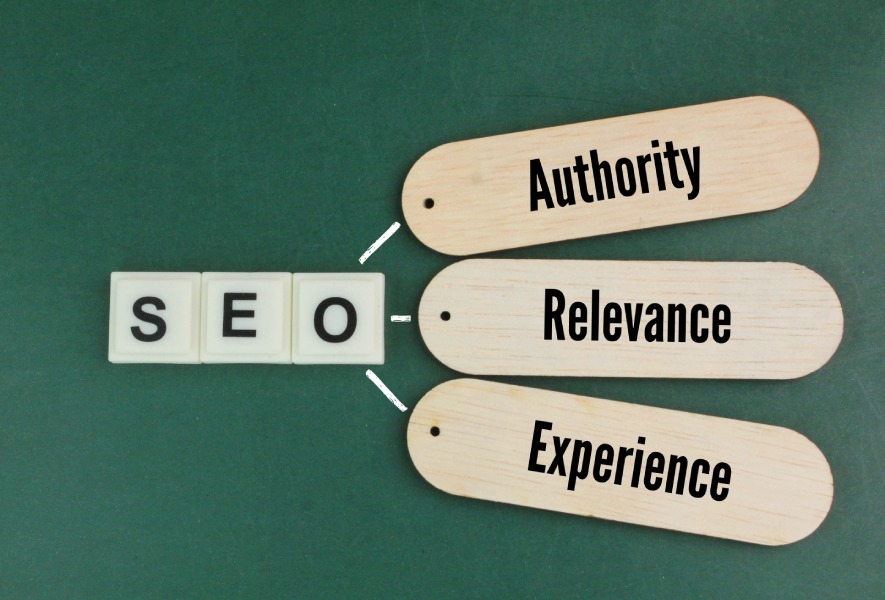In today’s digital landscape, standing out online is more challenging than ever. Search engines have evolved, and the old tactics of churning out content no longer guarantee success. This is where topical authority enters the picture. It’s a concept that’s reshaping how we approach content creation and SEO.
This term has gained traction among marketers and content creators alike. It’s become a key strategy for those aiming to lead their industries and boost their online visibility. But what is topical authority? Why has it become so crucial in modern SEO?
Marketers are eager to understand topical authority’s role in digital strategy. It promises to revolutionize content creation and potentially boost search rankings and audience engagement.
In this article, we’ll explore topical authority in depth. We’ll uncover its significance in today’s online world and how it can transform your digital presence. Join us as we examine how topical authority can enhance your online presence and promote engagement with your target audience.

What Is Topical Authority?
First, what is authority in SEO? Authority in SEO refers to a website’s credibility and expertise in a specific topic or field, as perceived by search engines. It’s determined by factors like high-quality content, backlinks from reputable sites, and user engagement.
Websites with higher authority tend to rank better in SERPs for relevant queries. Becoming a topical authority in SEO and content creation means establishing yourself as an expert on a specific topic. This expertise helps boost your site’s trustworthiness and search engine ranking.
Building and Measuring Topical Authority
To build your authority, focus on creating in-depth content that covers various aspects of your chosen topic. By linking these pieces together, you demonstrate to search engines that your site has a clear focus on the subject.
Unlike domain authority, which measures the overall strength of a website, topical authority is all about expertise in one subject. Increase it by regularly writing detailed articles that answer the target audience’s questions and interlink them.
Measure it through keyword rankings, topic-related traffic, and links from respected sites. Building topical authority requires time. But with consistent creation of quality content, you can become a go-to source. This can help improve search rankings and increase site traffic.
Why Is Topical Authority Important?
Topical authority is crucial in online content and search, enhancing your website’s visibility by ranking it higher in search results for topics you specialize in. This leads to better content creation as you explore topics deeply, making your site a valuable resource.
Topical authority enhances search rankings, attracts targeted traffic, and boosts the chances of featured snippets. It also builds trust with your audience, encouraging repeated visits and content sharing. Over time, this trust fosters a loyal audience and establishes you as a leader in your field, making the effort to build topical authority highly rewarding.
Components of Topical Authority
Topical authority is built on several key components. Each of these plays a vital role in establishing your expertise on a subject. Let’s explore these components to understand how they work together to create strong topical authority.
Comprehensive Coverage
The first component is comprehensive coverage. This means covering all aspects of your topic, from basic concepts to advanced ideas. You need to address common questions and provide in-depth explanations. It’s important to use examples and case studies to make your points clear.
Don’t just stick to the surface level — dive deep into your subject. Also, keep your content up-to-date. Regularly add new information and update old content. This shows you’re actively engaged with your topic and aware of new developments.
Integrating multimedia elements like videos and infographics can enhance understanding and engagement. Encouraging user feedback and incorporating it into your updates also demonstrates responsiveness and dedication to quality.
Content Quality
Next, we have content quality. This is crucial for building trust with your audience. Make sure all your information is accurate and comes from reliable sources. If you make a mistake, correct it quickly. Write in a clear, engaging style that’s easy to understand.
Use simple language and break up your text with headings and visuals. Always focus on your audience’s needs. Provide practical advice and encourage readers to engage with your content through comments or surveys. Ensure your content is free from grammatical errors and optimized for mobile devices.
Regularly review and update your content to maintain its relevance and value. Incorporate multimedia elements, such as videos and infographics, to enhance engagement. Consider using SEO best practices to increase your content’s visibility.
Internal Linking
Internal linking is another important component. This means connecting your content to your own site. Create groups of related articles and link them together. Use descriptive anchor text for your links so readers know what to expect. Spread your links evenly across your site, making sure important pages get enough attention.
This helps both readers and search engines understand how your content fits together. Ensure that your internal links lead to relevant and valuable content to maintain user interest. Regularly audit your internal links to fix broken ones and update outdated links. Consider creating a sitemap to improve the site’s navigability and search engine indexing.
External References
Finally, we have external references. This includes citing credible sources and earning backlinks from other sites. When you use information from elsewhere, link to reputable sources. This shows your content is well-researched. To earn backlinks, create valuable content that others would want to share.
Reach out to other websites in your field and participate in industry discussions. Regularly check who’s linking to you and manage your backlink profile to maintain quality. By focusing on these components — comprehensive coverage, content quality, internal linking, and external references — you can build strong topical authority.
This takes time and effort, but it’s worth it. Strong topical authority helps you rank better in search results, builds trust with your audience, and establishes you as a leader in your field.
Building Topical Authority
Building topical authority is a process that requires careful planning and execution. It involves creating a solid content strategy, conducting thorough research, and producing high-quality content. Let’s break down these components to understand how you can build strong topical authority for your website or brand.
Content Strategy
Your content strategy is the foundation of building topical authority. Start by choosing a main topic for your website, something you are knowledgeable or passionate about. Break the main topic (pillar) into smaller subtopics (subpillars) to ensure comprehensive coverage of your subject.
Next, identify your core topics and subtopics. List the most important aspects of your main topic and research what your audience wants to know. This will help you create content that is both comprehensive and relevant to your readers.
Creating a content calendar is also important. Plan your content in advance, deciding what you will write about and when. This keeps you organized and ensures you are consistently publishing new content. Mix up your content types to keep things interesting for your readers.
Research and Keywords
Good research is key to building topical authority. Use reputable sources for your information and stay up-to-date with the latest developments in your field. This ensures your content is accurate and current with the latest developments.
Keyword research is an important part of this process. Use tools like Google Keyword Planner or SEMrush to find relevant terms people are searching for. Look for both popular keywords and more specific long-tail keywords.
When you use these keywords in your content, do it naturally. Include them in titles, headings, and throughout your text, but avoid overuse. Your target audience comes first, then the search engine follows, meaning the content needs to be written in plain and concise language, with naturally implemented keywords fit for your audience.

Content Creation
When it comes to creating content, focus on writing high-quality, in-depth articles. Cover your topics thoroughly and use clear, simple language. Structure your content with headings and subheadings to create comprehensive content.
Address common questions and objections your readers might have. Don’t forget the importance of multimedia. Add relevant images to your content to break up the text and make it more engaging. Create infographics to explain complex ideas in a simple manner. Consider using videos to demonstrate processes or explain concepts in a different way.
By following these strategies, you can build strong topical authority over time. This will help establish you as an expert in your field, improve your search engine rankings, and provide real value to your audience.
Measuring Topical Authority
Understanding how to measure topical authority is critical for improving your content strategy and SEO efforts. It involves using various metrics and tools to evaluate your content’s performance and impact. Let’s explore the key aspects of measuring topical authority.
Metrics and Tools
To measure topical authority, you need to understand and use several important metrics. These include organic traffic, bounce rate, time on page, and backlinks. These metrics help you see how well your content is performing and how users are interacting with it.
Google Analytics is a powerful free tool that provides valuable insights into your website’s performance. It shows you how people find your site, which pages they visit, and how long they stay on the said page. This information helps you understand what content is most effective.
For more advanced analysis, tools like AHREFS or SEMrush are extremely useful. They allow you to track keyword rankings, analyze backlinks, and even study your competitors’ strategies. These insights can guide your content creation and SEO efforts.
Measuring Topical Authority
When assessing your topical authority, pay close attention to your organic search traffic. An increase in traffic from topic-related keywords is a good sign that your authority is growing. Also, look at engagement metrics like bounce rate and time on page. These show how interested people are in your content.
Content Performance
Identifying top-performing content
Identifying your top-performing content is key to understanding what works for your audience. Use analytics to find your most popular pages and analyze why they’re successful. This can guide your future content creation.
Spotting content gaps
It’s also important to spot content gaps — topics you haven’t covered thoroughly or areas where competitors are outperforming you. This helps you plan new content that can boost your topical authority.
Finally, use the data you gather to make improvements. Update and refresh your content regularly, and experiment with different formats to see what resonates best with your audience.
Continuous improvement for topical authority
By consistently measuring and analyzing these aspects of your content, you can continually improve your topical authority. This process takes time and effort, but it’s essential for establishing yourself as a trusted source in your field and improving your overall SEO performance.

Conclusion
Topical authority has become a crucial element in modern SEO and content strategy. Websites can boost search rankings, attract targeted traffic, and build trust by showing expertise in specific subjects. Topical authority requires thorough coverage, quality content, internal links, and credible references.
So, what is topical authority? It’s the cornerstone of a successful digital presence, demonstrating your expertise and reliability in a specific field. Building this authority requires a well-planned content strategy, thorough research, and consistent creation of valuable content.
Measuring your progress through various metrics and tools is essential for continual improvement. By focusing on this concept, content creators and marketers can position themselves as industry leaders. They provide genuine value to their audience while improving their online visibility and engagement.





